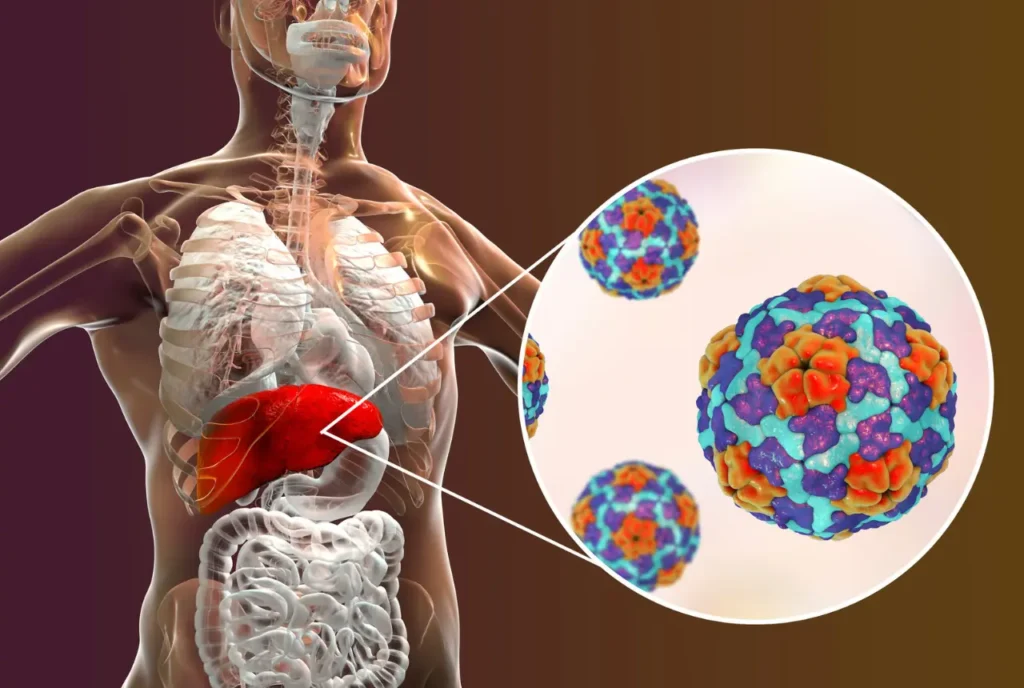
-
 Posted By Dr. Amritangsu Borkakoty
Posted By Dr. Amritangsu Borkakoty -
-
Comments 0
Our bodies rely on a silent powerhouse to a great extent – the liver. This crucial organ acts as a filter, detoxification center, and metabolic hub, performing over 500 essential functions every day.
It processes nutrients from food, removes toxins from the bloodstream, produces bile for digestion, and regulates blood sugar levels, all contributing to our overall health. Maintaining a healthy liver is crucial for well-being, yet many people unknowingly engage in habits that can harm this vital organ.
This blog dives into eight hidden liver harming factors that might surprise you. We’ll also explore four powerful ways to protect your liver and keep it functioning optimally.
8 Hidden Liver Harming Factors
1. Excessive Sugar Consumption:

While we all crave sweetness, overdoing it on sugar can overload your liver. Fructose, a type of sugar found in large quantities of processed foods, sugary drinks, and even fruits, gets processed primarily by the liver.
Excessive fructose intake can lead to fatty liver disease, where excess fat accumulates in the liver cells, potentially progressing to more serious damage.
2. Fructose-Containing Sweeteners:

High-fructose corn syrup (HFCS), a common sweetener in processed foods, is particularly damaging. Studies suggest it contributes more readily to fatty liver disease compared to regular sugar.
Luckily, healthier alternatives exist. In moderation, consider natural sweeteners like stevia, monk fruit extract, or dates.
3. Certain Medications and Supplements:

While medications and supplements often improve health, some can put stress on the liver, especially with long-term use. Over-the-counter pain relievers, certain antibiotics, and even some herbal supplements can be potentially harmful when not used as directed. Always consult your doctor before starting any new medication or supplement, and discuss potential effects on your liver.
4. Environmental Toxins:

We’re constantly exposed to environmental toxins in our daily lives. Pesticides on produce, air pollutants, and industrial chemicals can enter our bodies and put stress on the liver as it works to detoxify them. Opting for organic produce when possible, using air purifiers, and minimizing exposure to harsh chemicals can help reduce your toxic load.
5. Chronic Sleep Deprivation:

Sleep isn’t just for rest; it’s vital for liver function too. During sleep, the liver repairs itself and processes daily waste products. Chronic sleep deprivation disrupts these processes, potentially leading to impaired fat metabolism and increased inflammation, impacting liver health. Aim for 7-8 hours of quality sleep each night.
6. Uncontrolled Stress:
Chronic stress triggers the body’s “fight-or-flight” response, increasing inflammation. This can negatively impact the liver, hindering its ability to function properly. Practice stress management techniques like meditation, yoga, exercise, or relaxation methods to keep stress levels in check.
7. Certain Medical Conditions:

Certain medical conditions can pose a threat to the liver. Obesity, diabetes, and autoimmune diseases like celiac disease can increase your risk of liver damage. Managing these conditions effectively with your doctor’s guidance is essential to protect your liver health.
8. Untreated Viral Hepatitis:

Hepatitis A, B, and C are viral infections that attack the liver. Left untreated, chronic hepatitis B and C can lead to serious complications like cirrhosis and liver failure. Vaccination against hepatitis A and B is highly recommended. Practicing safe sex and avoiding sharing needles are crucial prevention measures for all forms of viral hepatitis.
4 Powerful Ways to Protect Your Liver
Maintain a Healthy Diet:
Nourish your liver with a balanced diet rich in fruits, vegetables, whole grains, and lean protein sources. These foods provide essential nutrients and antioxidants that support liver function. Consider incorporating liver-friendly options like coffee (in moderation), green tea, cruciferous vegetables (broccoli, cauliflower), and omega-3 fatty acids found in fatty fish.
Manage Weight:
Excess body fat, particularly around the abdominal area, can contribute to fatty liver disease. Maintaining a healthy weight through a balanced diet and regular exercise significantly reduces the risk of liver damage. Focus on healthy weight loss strategies like portion control, calorie awareness, and incorporating physical activity into your routine.
Limit Alcohol Consumption:
Alcohol is notorious for its damaging effects on the liver. Excessive alcohol consumption can lead to fatty liver disease, hepatitis, cirrhosis, and even liver failure. Men are advised to limit daily alcohol intake to two drinks, and women to one drink. If you struggle with alcohol dependence, seek professional help.
Practice Safe Habits:
Several safe practices promote good liver health. Always follow medication instructions from your doctor and avoid overusing over-the-counter medications. Get vaccinated for hepatitis A and B to prevent infection. When handling potentially toxic chemicals, wear protective gear
Conclusion
The liver is a resilient organ, but it’s not invincible. By understanding the hidden factors that can harm it and adopting the protective measures outlined above, you can empower yourself to take charge of your liver health. Remember, a healthy liver is vital for overall well-being.
If you have concerns about your liver function, or potential risk factors, or have experienced any symptoms that might be related (fatigue, nausea, unexplained weight loss), consult your doctor. Early detection and intervention are key to preventing serious liver complications. Schedule regular checkups and discuss any questions you might have to ensure your liver stays healthy and continues to perform its incredible functions for years to come.



